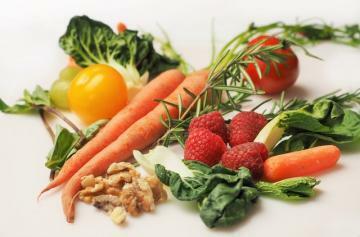Constipation is a problem that every person in life has ever encountered. How to deal with it?
Do not immediately take laxatives or put an enema. It is better to first try to establish digestion with the help of the right natural products.
- Why constipation occurs and how to deal with them
- Products that help cope with constipation
Why constipation occurs and how to deal with them
Fecal masses are formed from waste, toxins, electrolytes and water. With normal peristalsis, they easily move along the digestive tract to the exit. Constipation occurs with dehydration, lack of fiber in the diet, stress, and lack of sleep.
Pharmaceutical offers many types of laxatives: from tablets and potions to suppositories. The most common type is a stimulant that acts on the lining of the intestine and causes muscle contractions. In the long term, the artificial activation of peristalsis leads to the fact that the intestine is not able to empty itself, the dependence on this group of drugs is formed.
The use of another type of laxative( osmotic and hyperosmolar) involves the injection of fluid into the intestines with an enema. As a filler can be used water, oil mixture, herbal infusions.
In the pursuit of harmony and the wave of popularity of various cleaning methods, the use of drugs to treat constipation has become a common practice. But we must remember that the abuse of laxatives is fraught with:
- by dehydration;
- electrolyte imbalance;
- inability of the body to produce enzymes;
- edema;
- dizziness;
- damage to the large intestine;
- diarrhea, constipation;
- loss or weight gain;
- problems with the heart.
The use of laxatives is justified in rare cases( for example, on a journey, with a sudden digestive disorder).
The body has the ability to independently cleanse and detoxify, you only need to provide it with the necessary nutrients and liquids( water, fiber, whole grains, electrolytes and minerals).
Products that help to cure constipation
In case of constipation, the following natural remedies will help to regulate the intestine:
1. Aloe
Contains anthraquinones - compounds that stimulate the secretion of mucus and promote peristalsis. Anti-inflammatory components reduce puffiness, stimulate digestion.
Aloe juice normalizes pH, inhibits yeast growth, stimulates the proliferation of beneficial bacteria. Contains enzymes, minerals, electrolytes, vitamins( A, C, E, group B).
To cleanse the intestines, add aloe( 2 tsp) to any freshly squeezed juice( preference - carrot, apple, beetroot).
You can take the juice undiluted( no more than a teaspoonful) before eating twice a day. Relieves of constipation and a mixture of aloe( in equal parts) with honey.
2. Chilli seeds
In combination with the liquid, form a jelly-like substance, enveloping the contents of the stomach and facilitating the movement of food through the digestive tract( 150 ml of water per tablespoon of chia).
3. Flaxseed
Excellent source of fiber. Seeds "weight" the mass, moving along the intestines, relieve both constipation and diarrhea. You can use them in combination with oat flakes, in salads, add to smoothies.
A laxative infusion is prepared from 50 g of seeds and half a liter of boiling water. Insist 12 hours, strain. Use for a day, taking 100 ml.
4.
leafy vegetables In addition to fiber, vegetables( spinach, feces, chard, cabbage) provide the body with magnesium. Electrolyte is necessary for normal operation of the muscles of the colon, promotes the absorption of water( which helps to soften the stool), relieves spasms.
The abundance of magnesium is evidenced by the watery consistency of the faeces, in which case the consumption of products containing the element should be reduced.
5. Probiotics
Supply "good" bacteria( lacto-, bifido-, acidophilic) to the intestines, creating a healthy microflora.
Probiotics include not only dairy products( kefir, yoghurt, goat cheese), but also fermented vegetables( wetted tomatoes, cucumbers, sauerkraut), kombucha, bread on leaven.
6. Fruits with a high fiber content
Water, fiber and antioxidants found in their composition reduce inflammation and promote peristalsis.
Fruits containing pectin fibers( apples and pears) are especially useful, as pectins stimulate the intestines. Apple cider vinegar is also effective.
For constipation in the menu you need: oranges, bananas, grapefruit, figs( dried), raisins, blackberries.
7. Coconut water
Suitable as an alternative to conventional. In addition, the liquid contains electrolytes, carbohydrates.
Introduce coconut water in small portions so as not to provoke diarrhea.
Physical exercises( pelvic rotation, "bicycle", pulling up the legs to the chest, running, fast walking, jumping) contribute to the regular emptying of the intestine.
Before taking on pharmaceuticals, try to solve the problem with products that have the properties of laxatives. They will help to establish digestion and protect against serious side effects.

